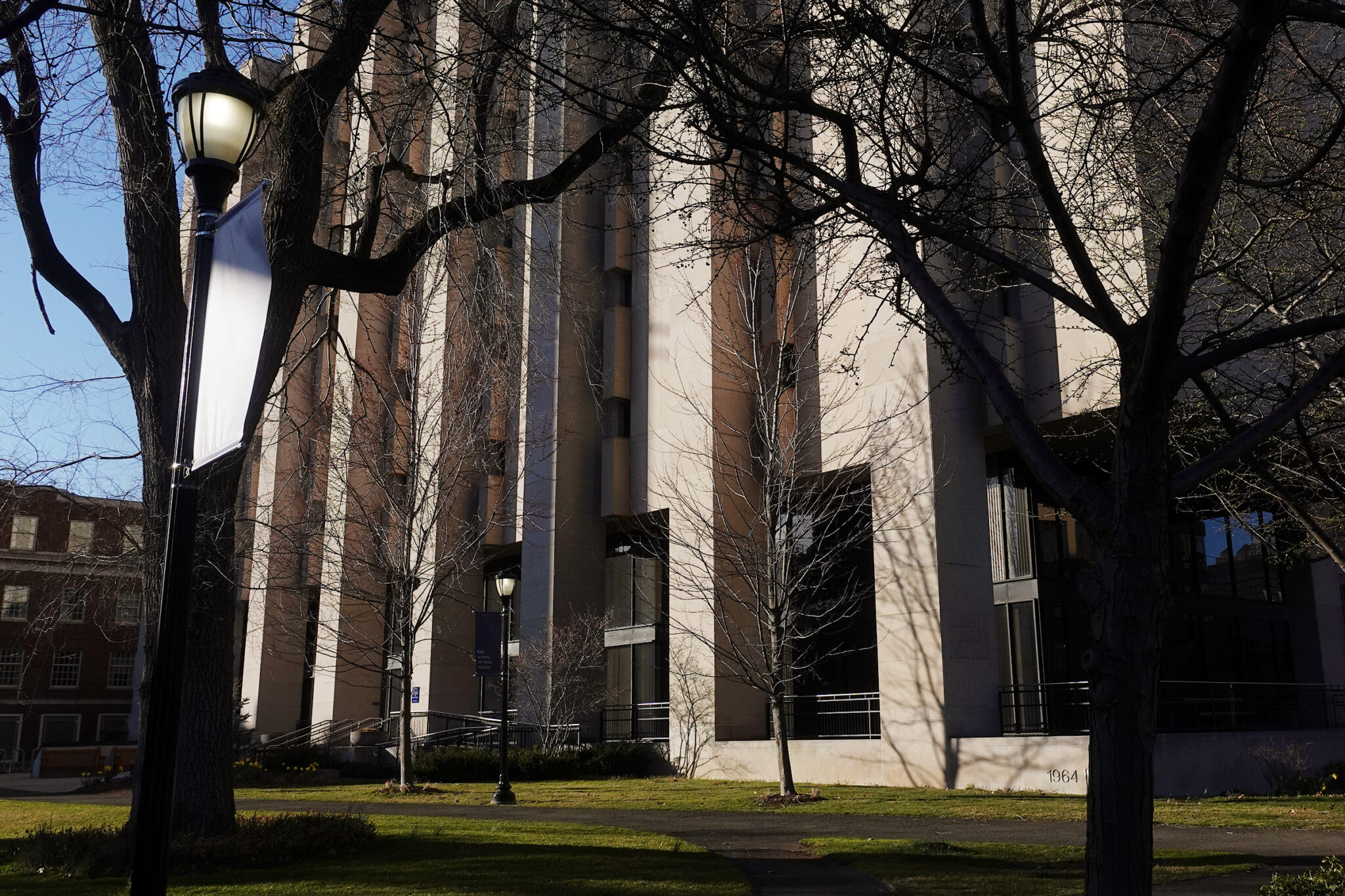American Public Health Association screens public health grads’ short film on African student hardships during Russia-Ukraine War
The short video has been accepted for screening at the APHA's annual film festival.

Tim Tai, Senior Photographer
On Nov. 9, the American Public Health Association Film Festival screened a short film created by three graduates from the Yale School of Public Health.
Chidum Okeke SPH ’23, Kelvin Amenyedor SPH ’23 and Mukund Desibhatla SPH ’23 first started working together in a graduate-level course titled “Humanities, Arts and Public Health,” taught by Judith Lichtman SPH ’88 GRD ’96 GRD ’97 — director of the Humanities, Arts and Public Health Practice at Yale Initiative, known as H.A.P.P.Y., and Susan Dwight Bliss Professor of Chronic Disease Epidemiology.
For their final project, they decided to create a short film entitled “‘African Wave’ – Voices Amidst Conflict Caught in the Crossfire of the Russian-Ukrainian War.” The movie’s film festival screening preceded the APHA Annual Meeting and Expo, which is currently being held in Atlanta from Nov. 12 to 15.
“Myself and a few classmates were very interested in how come these particular students — African students in light of the Ukraine war — haven’t really been touched on?” Okeke said to the News. “We also felt like it was one of those where people don’t really understand to what extent a lot of these humanitarian crises actually impacts populations.”
Okeke said that Nassim Ashford SPH ’23, founder of NoirUnited International — a global humanitarian organization that advocates for Black and other marginalized communities in development solutions — originally inspired the development of their film. At the outset of the war, Ashford and his organization worked to support African students and other individuals fleeing the Ukraine war.
While assisting these refugees, Ashford noticed that many of them suffered from increased levels of racial discrimination and a hostile environment.
“Public health knows that racial discrimination impacts health and it causes anxiety, depression and a lower quality of life,” Ashford said. “By mixing these aspects of public health and ingraining it with what social justice means on a larger scale, what’s happening around the world and then thinking about international relations as a whole, we all have the power to stand up and speak for those who do not have access to speak and push resources in a direction for those who do not have resources to meet that need.”
Ashford noted that many students had to leave Ukraine and seek refuge in other European countries, resulting in a lengthy process that sometimes left them in vulnerable political positions.
According to Ashford, many African students were not granted equal legal rights and were overlooked in assistance during the migration and resettlement process.
“We work with a lot of policy-oriented partners throughout different countries in Europe — in Germany, Poland, and France — to implement policies on the national level within those countries that would enable them to have the same access to legal rights as Ukrainian nationals,” Ashford said. “That allows refugees fleeing crises to seek refugee status within the EU and with that they’re able to come into the country and have certain social benefits that allow them to stay there for a limited amount of time.”
Ashford made multiple visits to Ukraine and Poland and interacted with African students impacted by the war. During this time, Ashford formed multiple relationships with students in these challenging circumstances.
Many of these students Ashford encountered during his time overseas served as subjects and provided their narratives for the production of this film.
“We felt as though this was like the perfect opportunity to not only highlight this particular aspect of the Ukraine war, but also kind of visually storytell the realities and make people actually think about ‘how do we even go about supporting these types of things?’” Okeke said. “In future humanitarian crises, I think it kind of pushes people to think deeper about how people are actually being affected and also subgroups that may not be highlighted within the mainstream media.”
Okeke said that the School of Public Health helped cultivate an academic atmosphere that facilitates interdisciplinary collaboration.
He also emphasized the importance of being creative when making content that resonates with the audience, especially when the artists seek to provoke action and reflection.
“I think really, what it takes to push this needle as it relates to Yale, when you can broadly across different institutions and people willing to be different than the status quo and willing to push the boundaries of what is possible as it relates to storytelling,” Chidum said.
For Amenyedor, a medical doctor from Ghana, the film had a profound personal connection. Much like the students in the film, he also migrated from an African country and moved abroad seeking to obtain better education opportunities.
In interviewing different students for this film, Amenyedor said the students highlighted how they experienced a wide range of disparity and racism, especially for asylum-seeking status in other European countries. African and other nationals from developing countries faced a double standard when they were being treated as refugees.
In the summer, the film was accepted into the APHA Film Festival. While Amenyedor is proud of its acceptance and believes that it will help African students affected by the war, he also highlighted how Ashford’s work helped students on-the-ground.
“We just did a film, but he actually helps them. He actually goes there to help them,” Amenyedor said.
The short film can be viewed on Yale’s School of Public Health YouTube channel or here.







